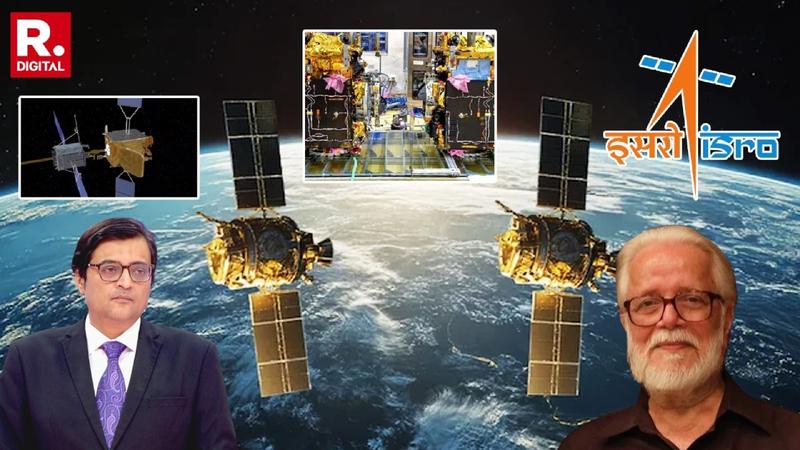Published 22:21 IST, December 30th 2024
India to Become 4th Nation with Space Docking Technology as ISRO Prepares for SpaDeX Launch
Former ISRO scientist Mr. Nambi Narayanan, emphasized the mission’s importance for India’s aspirations in space exploration.

Sriharikota, Andhra Pradesh - The Indian Space Research Organisation ( ISRO ) is set to make history with the launch of its Space Docking Experiment (SpaDeX) mission on Monday. The mission, which will lift off from the Satish Dhawan Space Centre using the trusted Polar Satellite Launch Vehicle (PSLV), aims to demonstrate a critical technology essential for India’s space exploration ambitions: in-space docking.
The mission will deploy two specially designed satellites, each weighing around 220 kg, into low-Earth orbit. This pioneering effort will establish India as the fourth nation globally to achieve in-space docking capability.
Speaking exclusively with Republic, Aerospace engineer and former ISRO scientist Mr Nambi Narayanan shared details of the significance of the SpaDeX mission.
“ISRO is very popular for cost-saving and curbing various mission requirements,” Mr Narayanan said regarding ISRO's capabilities to hone the mission.
The SpaDeX mission marks a significant step forward for ISRO, as this technology is indispensable for future goals like manned lunar exploration, sample-return missions, and the development of the Bharatiya Antariksh Station (BAS). The ability to dock spacecraft in orbit allows for modular assembly in space and ensures the success of complex missions requiring multiple launches.
A Milestone in Space Technology
The primary objective of the SpaDeX mission is to demonstrate the rendezvous, docking, and undocking of two small spacecraft—SDX01 (Chaser) and SDX02 (Target)—in a low-Earth orbit. The mission will also explore the transfer of power between docked spacecraft, composite control of a combined system, and the operation of payloads post-undocking.
“It'll be useful for many purposes, which will include the Chandrayan-4 (Mission). Then we also have Gaganyan,” Mr Narayanan elaborated.

The two spacecraft are equipped with advanced payloads. SDX01 carries a High-Resolution Camera (HRC) for high-precision imaging, while SDX02 is equipped with a Miniature Multi-Spectral Payload (MMX) for environmental monitoring and a Radiation Monitor (RadMon) for measuring radiation exposure in space.
Regarding India's aspirations to have its own space station, Mr Narayanan noted, “Anything which relates to space, future travels, this docking is very important. Without this you can't do anything.”
These payloads, designed by ISRO’s Space Applications Centre (SAC), underscore the dual focus of the mission: advancing space technology and supporting applications such as resource monitoring and space science research.
A Leap Towards Aatmanirbhar Bharat
The SpaDeX mission is a testament to India’s commitment to Indigenous innovation under the Aatmanirbhar Bharat initiative. By developing and demonstrating in-space docking technology, ISRO is laying the groundwork for more ambitious missions, ensuring that India remains at the forefront of global space exploration.

“This (mission) is actually a prelude to other missions which are in the charter. It is crucial,” Mr Narayanan stated.
With the countdown underway, the SpaDeX mission is set to become a landmark event in India’s space journey, reinforcing ISRO’s role as a leader in advancing cutting-edge technology for national and international missions.
Watch-
Updated 22:25 IST, December 30th 2024




